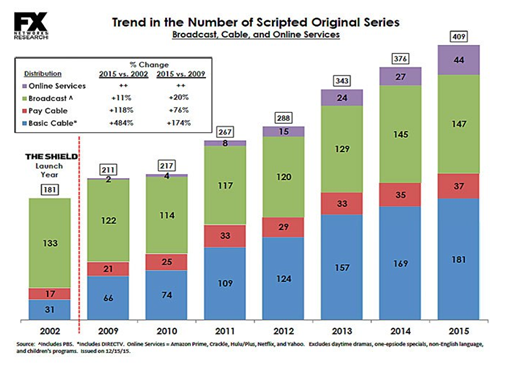Intellectual Property: Trump Administration Can Reverse Eight Years of Erosion Under Obama
In Forbes today, intellectual property (IP) attorney Howard Hogan highlights the importance of IP to the American economy (38% of GDP and 30% of jobs) and considers the opportunity for positive change under a Trump Administration after eight years of poor leadership under Barack Obama.
Hogan highlights the pernicious influence of Google during the past eight years, given its self-interest in weakening America’s historic protection of IP rights and free-riding off of others’ creations:
Arguably, no company has been more influential than Google in setting policy in America in recent years… White House officials met with employees of Google or related companies 427 times – an average of more than once a week, while approximately 30 Google personnel have taken positions in the Obama Administration, and about 20 former members of the White House staff have landed at Google…
One of the consistent goals of this political machine has been to promote policies that have the effect of weakening legal protections for IP rights. The reason for these policy preferences lies in Google’s role as content distributor and advertiser. Google does not create the overwhelming majority of the content that its users seek; it generates much of its revenue by displaying ads while connecting users to content created by others, or by selling platforms to access such content. For Google, the ability to distribute popular third-party content or sell rights to use other companies’ trademarks with few strings attached is tantalizingly profitable.”
Among the destructive agenda items pushed by Google? The “set-top box” proposal within Obama’s Federal Communications Commission (FCC), which we at CFIF continue to emphatically oppose:
A recent example was the so-called ‘set-top box rule’ proposed by the Chairman of the Federal Communications Commission. The proposal would have used a statute designed to promote competition among cable television set-top boxes as a vehicle to force cable companies to give tech companies like Google free access to raw video and data feeds that cable companies provide to their customers.
While much about the proposed rule remains controversial, there is no doubt that it would have benefited the Googles of the world, who could sell devices and advertising based on content that they had not licensed from copyright owners, without paying royalties, and with little fear that the owners would be able to enforce the licensing restrictions that led them to offer the video content to cable companies in the first place. Google and its allied advocacy groups all filed comments in support of the proposal. Even President Obama threw his support behind the rule, prompting some to question whether he was exerting undue pressure on a supposedly independent agency.”
As Howard concludes, companies like Google contribute a great deal to the American economy and our lives, but we must also do a far better job of protecting American IP rights, which may be our greatest comparative advantage over other nations in an increasingly competitive global information economy.



 CFIF Freedom Line Blog RSS Feed
CFIF Freedom Line Blog RSS Feed CFIF on Twitter
CFIF on Twitter CFIF on YouTube
CFIF on YouTube